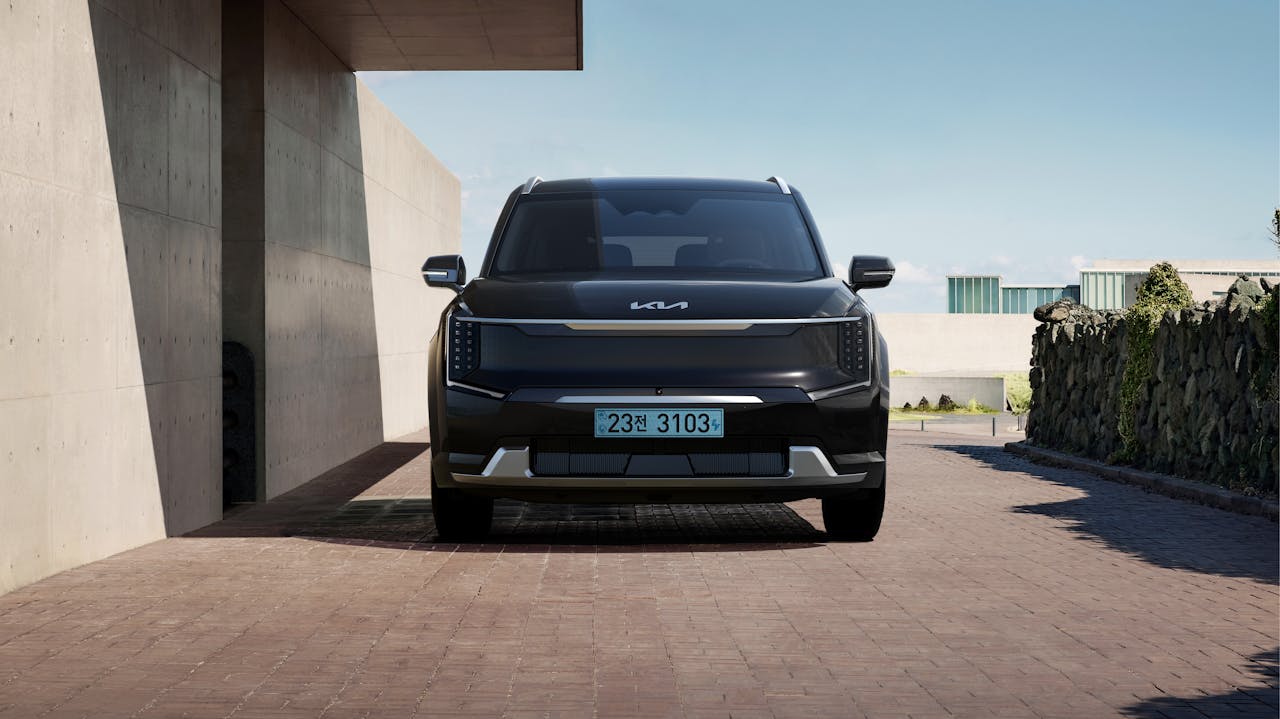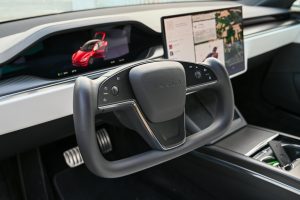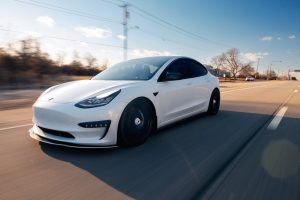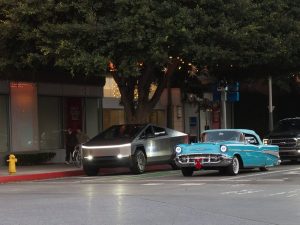Best Electric Cars Under $40,000
$40,000 has become the dividing line for value in the 2025 U.S. EV market. Tight budget but still want a decent range, solid features, and good reviews? The good news: there are still some great choices hiding below this price ceiling.
Today, we’re going beyond basic spec sheets. We’ll break down what truly matters—real-world range, winter performance, user ratings, safety scores, and brand service quality—to help you figure out what’s actually worth your money.
1. Tesla Model 3 RWD (Base Rear-Wheel Drive)
Starting Price: $38,990 (lower with federal incentives)
EPA Range: 272 miles
Winter Range Loss: Approx. 25% (tested range ~205 miles)
Safety Rating: NHTSA 5 stars
User Rating: 4.6 / 5
The base rear-wheel drive Model 3 remains the most iconic EV under $40k. It delivers fast acceleration, a futuristic driving feel, and access to Tesla’s ever-evolving Autopilot (though Full Self Driving costs extra). OTA updates keep the experience fresh long after purchase.
Its downsides? Thin paint, mediocre sound insulation, and a love-it-or-hate-it service network. But if you’re after a smart, quick, and techy ride—this is still top-tier.
2. Hyundai Ioniq 6 SE RWD
Starting Price: $37,500
EPA Range: 361 miles
Winter Range Loss: Approx. 20% (tested range ~290 miles)
Safety Rating: IIHS Top Safety Pick+
User Rating: 4.7 / 5
The Ioniq 6 is Hyundai’s sleek answer to the EV challenge. Ultra-aerodynamic styling gives it one of the best ranges in class, and its 800V fast-charging system juices from 10% to 80% in just 18 minutes.
In cold climates, it shines. Real-world users report better winter stability than the Model 3. Interior tech is intuitive, the dual screens are fast, and overall satisfaction scores are excellent. If you prefer traditional brand reliability, this is a must-see.
3. Chevrolet Equinox EV 1LT
Starting Price: $34,995
EPA Range: 319 miles
Winter Range Loss: Approx. 28% (tested range ~230 miles)
Safety Rating: NHTSA 5 stars
User Rating: 4.4 / 5
The Equinox EV is GM’s big play for the mainstream market. It’s a compact SUV with solid space, family-friendly features, and generous safety tech like adaptive cruise control and blind-spot monitoring—standard.
Charging is just okay (150kW DC), and GM’s service infrastructure for EVs still lags behind Hyundai or Tesla. But for just over $34k, few other electric SUVs match it for value and roominess.
4. Kia Niro EV
Starting Price: $39,600
EPA Range: 253 miles
Winter Range Loss: Approx. 18% (tested range ~208 miles)
Safety Rating: IIHS Top Safety Pick
User Rating: 4.5 / 5
Though based on an older platform, the Kia Niro EV still punches above its weight in the small EV category. It’s tailored for urban drivers—quiet, smooth, and very winter-friendly.
Its range isn’t jaw-dropping, and fast charging tops out at 85kW, but Kia’s strong 10-year/100,000-mile battery warranty adds long-term peace of mind. For winter city driving with low risk? It’s a smart bet.
5. Volkswagen ID.4 Standard RWD
Starting Price: $39,735
EPA Range: 209 miles
Winter Range Loss: Approx. 30% (tested range ~146 miles)
Safety Rating: IIHS Top Safety Pick
User Rating: 4.2 / 5
With the shortest range on the list, the ID.4 Standard might not wow on paper—but it makes up for it with ride quality and German engineering feel. Handling is stable, especially on highways.
Still, range loss in winter is significant, and charging relies heavily on third-party networks like Electrify America. If your commute is short and you already own a gas car, this could be a comfortable EV addition.
2025 EV Comparison Chart: Under $40,000
| Model | Starting Price | EPA Range | Winter Range Loss | Fast Charging | Safety Rating | User Rating |
|---|---|---|---|---|---|---|
| Tesla Model 3 RWD | $38,990 | 272 mi | -25% | 170kW (Tesla Supercharger) | NHTSA ★★★★★ | 4.6 / 5 |
| Hyundai Ioniq 6 SE | $37,500 | 361 mi | -20% | 800V, 18 min to 80% | IIHS Top Safety Pick+ | 4.7 / 5 |
| Chevy Equinox EV | $34,995 | 319 mi | -28% | 150kW | NHTSA ★★★★★ | 4.4 / 5 |
| Kia Niro EV | $39,600 | 253 mi | -18% | 85kW | IIHS Top Safety Pick | 4.5 / 5 |
| VW ID.4 Standard | $39,735 | 209 mi | -30% | 135kW | IIHS Top Safety Pick | 4.2 / 5 |
Which One Should You Pick?
- Tech-focused & smart features → Tesla Model 3
- Longest range & winter stability → Hyundai Ioniq 6
- Family-friendly practicality → Chevy Equinox EV
- City-friendly with best winter performance → Kia Niro EV
- Comfort-focused & love German cars → VW ID.4
FAQ
1. What is the best electric car under $40,000 in 2025?
It depends on what matters most to you. If you’re looking for the longest range and best tech, the Hyundai Ioniq 6 SE is a top pick. For performance and smart features, many still prefer the Tesla Model 3 RWD. Family-focused buyers might go for the Chevy Equinox EV due to its spacious interior.
2. How do electric cars perform in cold weather?
Cold weather can reduce EV range by 15%–30%, depending on the model. In this list, the Kia Niro EV and Hyundai Ioniq 6 handle winter conditions better than others, with less range drop and more efficient heating systems.
3. Do these electric vehicles qualify for federal tax credits in the U.S.?
Yes, many EVs under $40,000 qualify for up to $7,500 in federal tax credits in 2025, depending on battery sourcing and assembly location. Always check the latest IRS eligibility list or consult your dealer.
4. Are budget EVs under $40,000 worth it compared to premium models?
Absolutely. Many EVs in this price range now offer 300+ miles of range, fast charging, and advanced safety features. Unless you need luxury interiors or performance above all else, budget EVs provide excellent value.
5. Which EV has the fastest charging time under $40K?
The Hyundai Ioniq 6 SE leads the pack with its 800V charging system. It can go from 10% to 80% in just 18 minutes using a compatible fast charger, beating most other EVs at this price point.
6. Is it better to lease or buy an EV in 2025?
That depends on your driving habits and how long you plan to keep the car. Leasing can be a smart choice if you want to upgrade often or take advantage of tax incentives. Buying is better for long-term value, especially with EVs offering strong warranties like Kia’s 10-year battery coverage.
7. What maintenance costs can I expect with these EVs?
EVs generally require less maintenance than gas cars—no oil changes, fewer moving parts, and regenerative braking helps extend brake life. Still, tire rotations, cabin filters, and battery health checks are important. Costs vary by brand and usage.
Have a favorite already? Drop a comment or share your own EV experience—we’d love to hear what you’re driving and why.
Is Electric Vehicle Safety Than Gas Cars? Full Safety Breakdown in 2025



